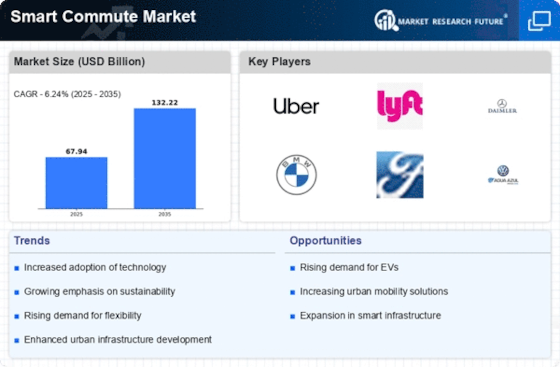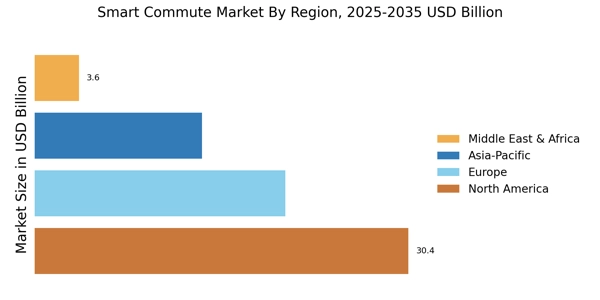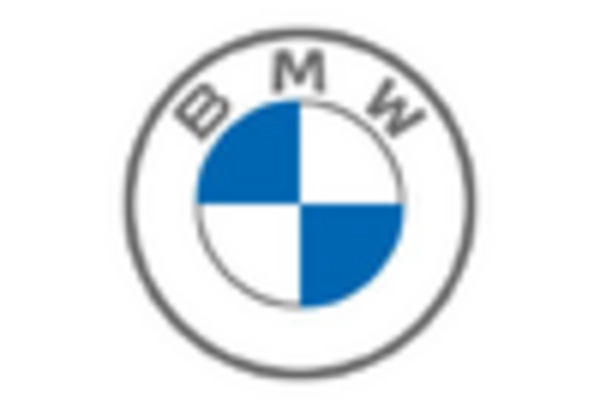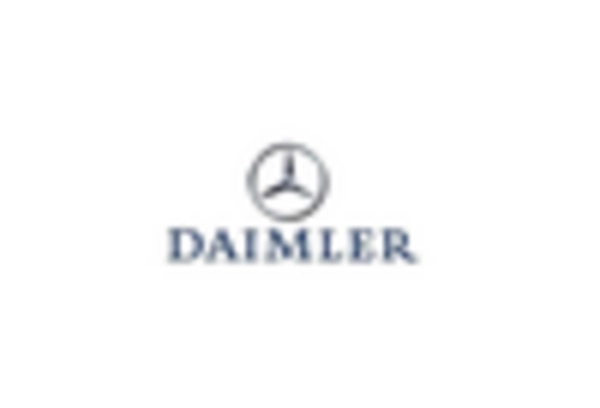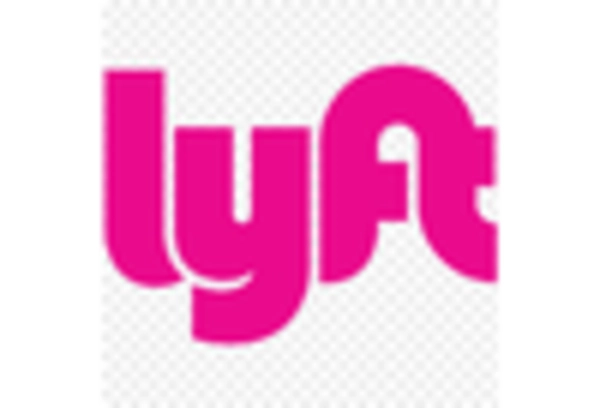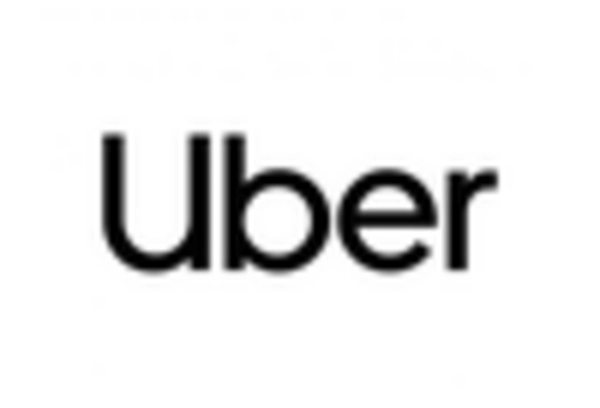Rise of Remote Work
The rise of remote work is reshaping the landscape of the Smart Commute Market. As more companies adopt flexible work arrangements, commuting patterns are evolving. Data suggests that remote work has led to a 20% decrease in daily commuting trips, which may influence the demand for traditional commuting solutions. However, this shift also presents opportunities for the Smart Commute Market to innovate and adapt. Companies are exploring smart commuting options that cater to hybrid work models, such as on-demand transportation services. This evolution indicates that the industry must remain agile to meet changing consumer needs, potentially leading to new business models and services.
Environmental Concerns
Environmental concerns are becoming increasingly salient in the Smart Commute Market. As awareness of climate change and pollution rises, consumers are gravitating towards sustainable commuting options. Data indicates that nearly 70% of individuals are willing to change their commuting habits to reduce their carbon footprint. This shift is prompting companies and municipalities to invest in eco-friendly transportation solutions, such as electric buses and bike-sharing programs. The Smart Commute Market is thus experiencing a transformation, as stakeholders prioritize sustainability in their offerings. This trend not only aligns with consumer preferences but also supports broader environmental goals, indicating a promising future for the industry.
Increased Urbanization
The Smart Commute Market appears to be significantly influenced by the ongoing trend of urbanization. As more individuals migrate to urban areas, the demand for efficient transportation solutions intensifies. According to recent data, urban populations are projected to reach 68% by 2050, which suggests a pressing need for smart commuting options. This shift necessitates innovative solutions that can alleviate congestion and enhance mobility. The Smart Commute Market is likely to benefit from this trend, as cities seek to implement smart technologies that facilitate seamless transportation experiences. Furthermore, urban planners are increasingly prioritizing smart commuting initiatives to improve the quality of life for residents, indicating a robust growth trajectory for the industry.
Technological Advancements
Technological advancements are a driving force behind the evolution of the Smart Commute Market. Innovations such as artificial intelligence, machine learning, and the Internet of Things are revolutionizing how transportation systems operate. These technologies enable real-time data analysis, enhancing route optimization and improving overall efficiency. Recent studies suggest that the integration of smart technologies in transportation could reduce travel times by up to 30%. As cities increasingly adopt these technologies, the Smart Commute Market is poised for substantial growth. Moreover, advancements in electric and autonomous vehicles are likely to reshape commuting patterns, offering new opportunities for stakeholders within the industry.
Government Initiatives and Policies
Government initiatives and policies play a pivotal role in shaping the Smart Commute Market. Various governments are actively promoting smart commuting solutions through incentives, subsidies, and regulatory frameworks. For instance, many countries have introduced policies aimed at reducing carbon emissions and enhancing public transportation systems. Data indicates that investments in smart transportation infrastructure are expected to exceed 200 billion dollars by 2025. This financial commitment underscores the importance of government support in fostering innovation within the Smart Commute Market. Additionally, public-private partnerships are emerging as a viable strategy to accelerate the development and deployment of smart commuting technologies, further solidifying the industry's growth potential.


